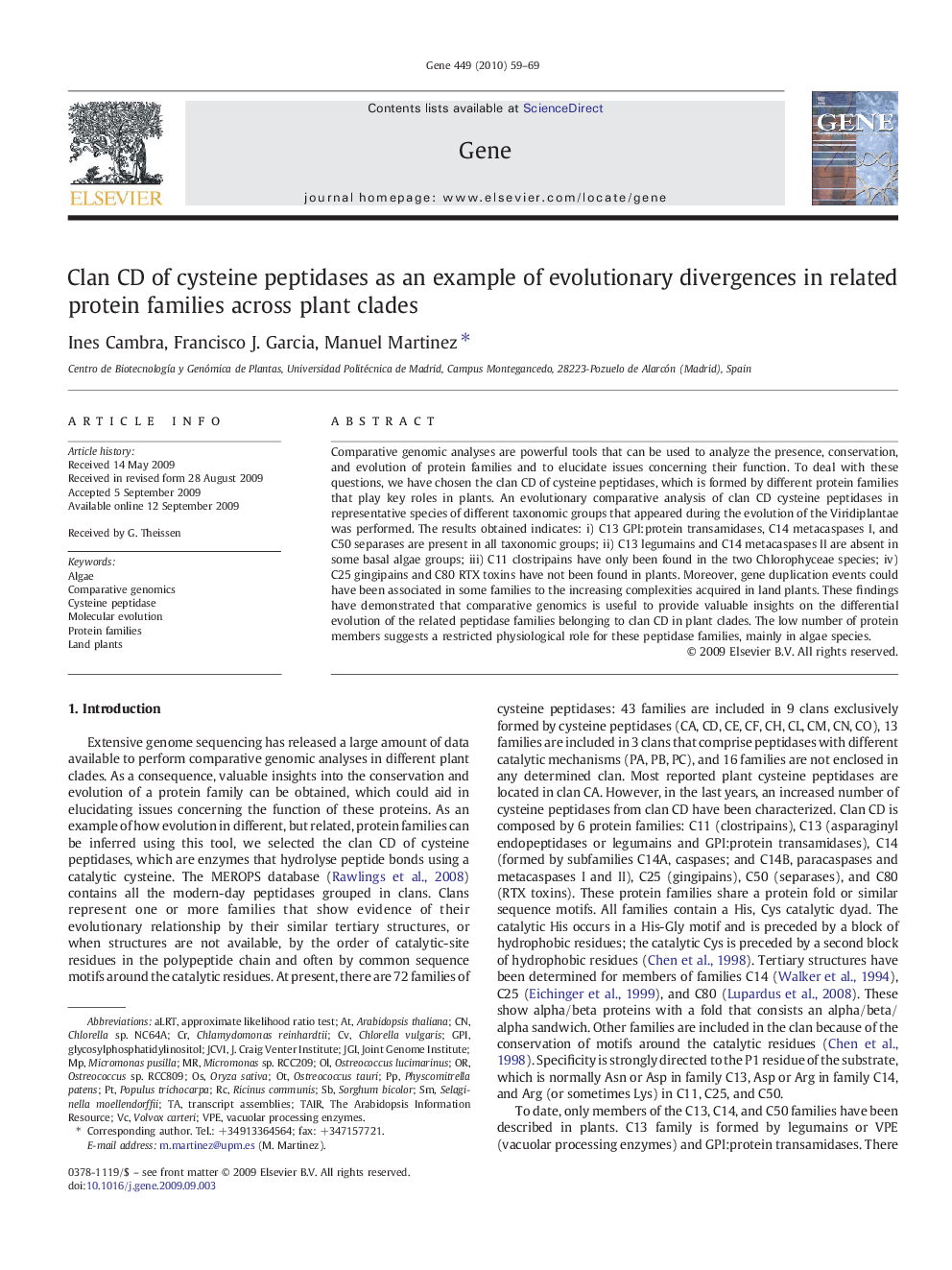| Article ID | Journal | Published Year | Pages | File Type |
|---|---|---|---|---|
| 2818704 | Gene | 2010 | 11 Pages |
Comparative genomic analyses are powerful tools that can be used to analyze the presence, conservation, and evolution of protein families and to elucidate issues concerning their function. To deal with these questions, we have chosen the clan CD of cysteine peptidases, which is formed by different protein families that play key roles in plants. An evolutionary comparative analysis of clan CD cysteine peptidases in representative species of different taxonomic groups that appeared during the evolution of the Viridiplantae was performed. The results obtained indicates: i) C13 GPI:protein transamidases, C14 metacaspases I, and C50 separases are present in all taxonomic groups; ii) C13 legumains and C14 metacaspases II are absent in some basal algae groups; iii) C11 clostripains have only been found in the two Chlorophyceae species; iv) C25 gingipains and C80 RTX toxins have not been found in plants. Moreover, gene duplication events could have been associated in some families to the increasing complexities acquired in land plants. These findings have demonstrated that comparative genomics is useful to provide valuable insights on the differential evolution of the related peptidase families belonging to clan CD in plant clades. The low number of protein members suggests a restricted physiological role for these peptidase families, mainly in algae species.
